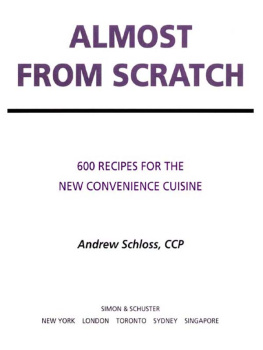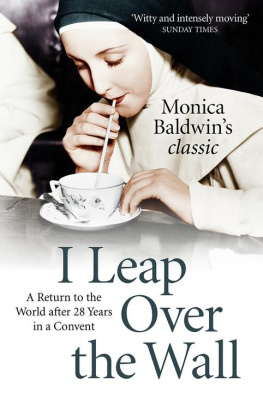the constructivist moment
the
constructivist
moment
FROM MATERIAL TEXT TO CULTURAL POETICS
BARRETT WATTEN

Published by
Wesleyan University Press,
Middletown, CT 06459
2003 by Barrett Watten
All rights reserved
Printed in United States of America
5 4 3 2 1
Library of Congress
Cataloging-in-Publication Data
Watten, Barrett.
The constructivist moment : from material text to cultural poetics /
Barrett Watten.
p. cm.
Includes bibliographical references and index.
ISBN 0-8195-6609-8 (alk. paper)ISBN 0-8195-6610-1
(pbk. : alk. paper)
1. American literature20th centuryHistory and criticism. 2. Avant-garde (Aesthetics)United StatesHistory20th century. 3. Avant-garde (Aesthetics)Soviet UnionHistory20th century. 4. Russian literature20th centuryHistory and criticism. 5. Literature, ComparativeAmerican and Russian. 6. Literature, ComparativeRussian and American. 7. American literatureRussian influences. 8. Constructivism (Russian literature) I. Title.
PS159.R8W38 2003
810.91dc21 2003001153
FOR ASA
I see plans of a house in stages of construction.
Workmen move across bare frames in open light.
Paralleles
CONTENTS
Introduction:
From Material Text to Cultural Poetics
CHAPTER 1: New Meaning and Poetic Vocabulary:
From Coleridge to Jackson Mac Low
CHAPTER 2: The Secret History of the Equal Sign:
L=A=N=G=U=A=G=E between Discourse and Text
CHAPTER 3: The Bride of the Assembly Line:
Radical Poetics in Construction
CHAPTER 4: The Constructivist Moment:
From El Lissitzky to Detroit Techno
CHAPTER 5: Nonnarrative and the Construction of History:
An Era of Stagnation, the Fall of Saigon
CHAPTER 6: Negative Examples:
Theories of Negativity in the Avant-Garde
CHAPTER 7: Post-Soviet Subjectivity in Arkadii Dragomoshchenko
and Ilya Kabakov
CHAPTER 8: Zone:
The Poetics of Space in Posturban Detroit
ACKNOWLEDGMENTS
I am especially grateful to Michael Davidson, Rachel Blau DuPlessis, Carla Harryman, Lyn Hejinian, Bob Perelman, Bruce Andrews, Alan Davies, Steve McCaffery, Ted Pearson, Ron Silliman, and Charles Bernstein for their work as poets and critics; to Ted for his help with the manuscript; and to Carla for many more reasons than that. This work, in its original presentations, was a response to the call from a number of individuals:
Thanks to Ron Day, whose proposal for a panel at the 1992 meeting of the Modern Language Association inspired me to write New Meaning and Poetic Vocabulary: From Coleridge to Jackson Mac Low, and to Gail Scott and the late Bill Readings, who facilitated its presentation at the Universit de Montral in March 1993. Brian McHale solicited it for Poetics Today 18, no. 2 (summer 1997); reprinted by permission of Duke University Press. Thanks to Jackson Mac Low, Herman Rapaport, and the editors of Poetics Today for their comments.
The Secret History of the Equal Sign: L=A=N=G=U=A=G=E between Discourse and Text was written for the conference Poetics of Avant-Garde Poetries in Tel Aviv, November 1997; thanks to Brian McHale, Meir Sternberg, Karen Alkalay-Gut, and Tamar Yacobi. It was also presented as a keynote address to Tradition and Resistance in Contemporary Poetry, Conference for English Studies, University of London, November 1998; thanks to Alison Mark and Robert Hampson. A section was presented at the Twentieth-Century Literature Conference at the University of Louisville, February 1998; thanks to Alan Golding. It appeared in Jonathan Monroe and Brian McHales special issue The Poetics of Avant-Garde Poetries, vol. 1, Poetics Today 20, no. 4 (winter 1999); reprinted by permission of Duke University Press. Thanks to Charles Bernstein for his comments.
Charles Bernstein invited me to present a talk at the SUNY Buffalo Poetics Program in November 1996, for which I am grateful; The Bride of the Assembly Line: Radical Poetics in Construction was the result. The English Department at Temple University heard a version of the essay in January 1997; my thanks to Rachel Blau DuPlessis. Steve Evans and Jennifer Moxley published it in the Impercipient Lecture Series, no. 8 (October 1997); a section also appeared in Dispatch Detroit 4 (2000), edited by Christine Monhollen. Thanks to Arthur Marotti and Georgette Fleischer for their comments, and to Jessica Burstein and Nancy Jones for the occasion of the unveiling of the Bride.
The Constructivist Moment: From El Lissitzky to Detroit Techno answered Cary Nelsons request to define the state of modernist studies at the 1997 meeting of the Modern Language Association, where it was presented with the title Free Radicals, Modernist Examples. Randolph Starn then sponsored it as a part of a two-day presentation at the Townsend Center for the Humanities, University of California, Berkeley, March 1998; after which it was given to faculty in the English Department of Wayne State University, October 1999. Thanks to the editors of the Berkeley journal Qui Parle, especially Faith Barrett, where it appeared in vol. 11, no. 1 (fall/winter 1997). Thanks as well to Mike Banks, Sandy Jaczszak, and Marc Christensen for their insights into techno.
Nonnarrative and the Construction of History: An Era of Stagnation, the Fall of Saigon was part of The Narrative Construction of History, a panel curated by Laura Brun, at Southern Exposure Gallery in San Francisco, March 1990. It was given as well at a conference, The Ends of Theory, Wayne State University, March 1991, thanks to George Tysh and the organizers; at the Unit for Theory and Critical Interpretation, University of Illinois, Champaign-Urbana, October 1992, thanks to Cary Nelson; at the University of California, San Diego, March 1993, thanks to Michael Davidson. It was solicited by Jerry Herron, Dorothy Huson, Ross Pudaloff, and Robert Strozier for inclusion in the conference volume The Ends of Theory (Detroit: Wayne State University Press, 1995); reprinted by permission of Wayne State University Press. A section also appeared in Peter Bakers anthology, Onward: Contemporary Poetry and Poetics (New York: Peter Lang, 1996). Thanks to Randolph Starn for his comments on the original version.
Negative Examples: Theories of Negativity in the Avant-Garde was originally presented at two conferences: iekian Negativity and Modernist Poetics, at the Twentieth-Century Literature Conference, University of Louisville, February 2000; and Avant-Garde Examples after Heidegger and Foucault: Robert Grenier and David Wojnarowicz, at Avant-Garde and Culture Studies, a seminar cochaired with Rachel Blau DuPlessis, at the Modernist Studies Association conference, University of Pennsylvania, October 2000. Thanks to Alan Golding and George Hartley for their comments.
An invitation from Ellen Berry to appear on the panel Postmodernism, Postcommunism at the 1991 meeting of the Modern Language Association led to the writing of Post-Soviet Subjectivity in Arkadii Dragomoshchenko and Ilya Kabakov. Thanks to the editors of Postmodern Culture, Eyal Amiran and John Unsworth, who published it in vol. 3, no. 2 (January 1993) and then included it in Essays from Postmodern Culture (Oxford: Oxford University Press, 1993); reprinted by permission of Johns Hopkins University Press. Thanks to Lyn Hejinian for her comments.
Helga Pakasaar, curator at the Art Gallery of Windsor, Ontario, asked me to give a lecture in conjunction with Stan Douglass exhibition
Next page







